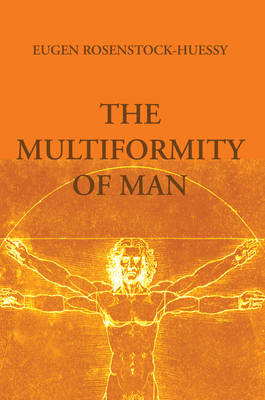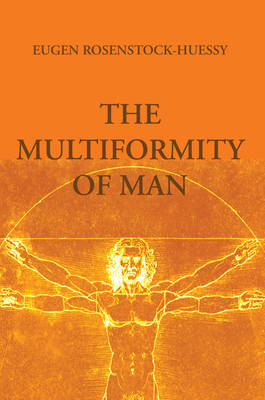
- Retrait gratuit dans votre magasin Club
- 7.000.000 titres dans notre catalogue
- Payer en toute sécurité
- Toujours un magasin près de chez vous
- Retrait gratuit dans votre magasin Club
- 7.000.0000 titres dans notre catalogue
- Payer en toute sécurité
- Toujours un magasin près de chez vous
29,45 €
+ 58 points
Description
Endorsements: ""The historical nature of man is the aspect of reality about which we have been basically and emphatically instructed in the epoch of thought beginning with Hegel . . . Rosenstock-Huessy has concretized this teaching in so living a way as no other teacher before him has done."" Martin Buber ""Rosenstock-Huessy continually astonishes one by his dazzling and unique insights."" WH.Auden ""He was a thinker of startling power and originality in my view an authentic genius of whom no age produces more than a handful."" Page Smith ""Rosenstock-Huessy's is a powerful and original mind. What is most important in his work is the understand¬ing of the relevance of traditional value to a civilization still undergoing revolutionary transformations; and this contribution will gain rather than lose significance in the future."" Lewis Mumford About the Contributor(s): Eugen Rosenstock-Huessy (1888-1973) was a sociologist and social philosopher who, along with his close friend Franz Rosenzweig, and Ferdinand Ebner and Martin Buber, was a major exponent of speech thinking or dialogicism. The central insight of speech thinking is that speech or language is not merely, or even primarily, a descriptive act, but a responsive and creative act, which is the basis of our social existence. The greater part of Rosenstock-Huessy's work was devoted to demonstrating how speech/language, through its unpredictable fecundity, expands our powers and, through its inescapably historical forming character, also binds them. Born in Berlin, Germany into a non-observant Jewish family, he converted to Christianity in his late teens. He met and married Margrit Hüssy in 1914. Rosenstock-Huessy served as an officer in the German army during World War I. He then pursued an academic career in Germany as a specialist in medieval law, which was disrupted by the rise of Nazism. In 1933, after Adolf Hitler became Chancellor of Germany, he immigrated to the United States where he began a new academic career, initially at Harvard University and then at Dartmouth College, where he taught from 1935 to 1957.
Spécifications
Parties prenantes
- Auteur(s) :
- Editeur:
Contenu
- Nombre de pages :
- 100
- Langue:
- Anglais
- Collection :
Caractéristiques
- EAN:
- 9781620324448
- Date de parution :
- 08-04-13
- Format:
- Livre broché
- Format numérique:
- Trade paperback (VS)
- Dimensions :
- 152 mm x 229 mm
- Poids :
- 145 g

Les avis
Nous publions uniquement les avis qui respectent les conditions requises. Consultez nos conditions pour les avis.






